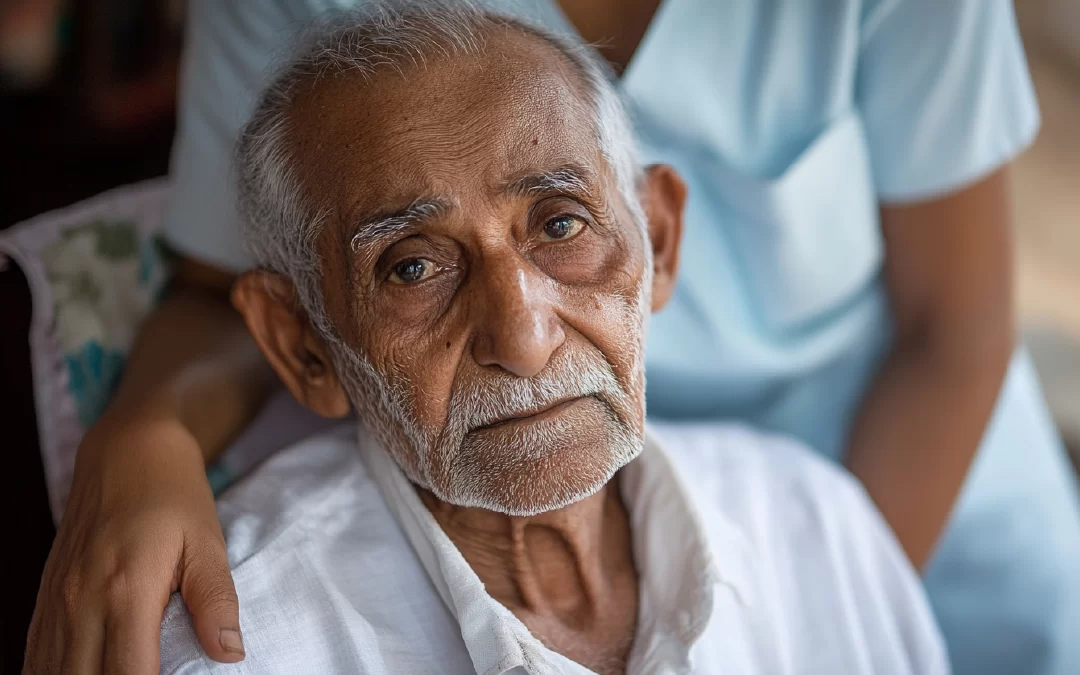Introduction: Dementia and Alzheimer’s
One of the bigger challenges in caregiving lies with elderly loved ones who have dementia and Alzheimer’s, requiring special, loving care. The tips that follow emphasize providing the best care for both the one receiving care and the one caring.
Dementia and Alzheimer’s: Understanding the Basics
Dementia refers to various dysfunctions of cognitive abilities, the most common being Alzheimer’s. Progressive memory loss, confusion, and behavioural changes are hallmarks of Dementia and Alzheimer’s. Mild, moderate, and severe progressions of the illness help carers recognize and adapt to the changing needs of their loved ones.
Essential Caregiving Tips:
1. Educate Yourself
Knowledge is power. It’s important to understand Dementia and Alzheimer’s and how it can progressively affect cognition and behaviour. With that knowledge, you will be better prepared to temper your expectations and to cope with all the frustrating and difficult situations that may arise. Resources from an organization like the Alzheimer’s Association have much to offer in the way of education, advice, and support.
2. Establish a Routine
A daily routine would keep the loved one with Dementia and Alzheimer’s safe because the same things are being done at the same time every day, which gives security and familiarity. Taking meals at the same time, enjoying activities together, and establishing a bedtime routine, all are factors that can help reduce anxiety and confusion. Consistency is also good for the brain in that it helps to maintain the memory going through by repeating similar functions.
3. Encourage Independence
Engage your loved one in as many daily activities as possible. This may be as simple as folding the laundry or setting the table. Being involved in these activities can make them feel good about themselves and feel needed, thus creating a partnership rather than a caregiver-dependent relationship.
4. Make Communication Simple
This will involve effective communication with your loved one who has Dementia and Alzheimer’s. You should use simple, clear language, and give your loved one time to process the information. Do not ask them complex questions but rather present choices that will place them in control. For example, ask them if they would like tea or coffee, not what they want to drink.
5. Focus on Nutrition
General health and a well-balanced diet are encouraged for elders with Dementia and Alzheimer’s. Encourage fruits, vegetables, whole grains, and lean proteins. Respect preferences, provide food within any nutritional restrictions, and consider dishes in puree consistency to facilitate swallowing.
6. Safety
As cognitive functions decline; safety needs to be assured at all times. Adapt living space to minimize tripping hazards, lock up sharp objects, and illuminate living space. At each stage of the disease, re-evaluate the home for safety features.
7. Encourage Social Interaction
Social engagement is really important for seniors with Dementia and Alzheimer’s. Ensure that opportunities are created for your loved one to engage socially with family and friends. Simple activities like watching a favorite movie or listening to music can trigger memories and boost feelings.
8. Manage behavioural changes
Behavioral symptoms are particularly tough, for elders with Dementia and Alzheimer’s, like when they are agitated or confused. Identify triggers and try to redirect their attention to something calming. Patience is key; know these behaviors are just due to the disease and are not a reflection of them as a person.
9. Take Care of Yourself
Caregiving itself can be so physically and emotionally demanding especially when dealing with Dementia and Alzheimer’s. Seek support from friends, family, and support groups to discover possible self-care. In keeping with this plan, with the use of relaxation techniques and taking some breaks, you can control stress and prevent the onset of burnout for the caregiver.
10. Seek Professional Help If Necessary
Be ready to know when professional help is needed. Home health aides or adult day care services can offer respite for the one who is giving care but still, ensure that your loved one is receiving proper care. Do not be afraid to call for help if the demands become overwhelming.
Conclusion
Bring compassion and experience to care for your elderly loved ones through KITES Senior Care. We can very well relate to some of the specific challenges that seniors and their families meet. We provide services from assisted living and dementia care to palliative support in a manner that is tailor-made to address needs at an individual level.
Let KITES Senior Care be the trusted partner to enhance well-being and the quality of life for your elderly family members. Your peace of mind starts right here!
Connect with us and talk to our expert for guidance or write to us at hello@kitesseniorcare.com or visit the KITES senior care centre nearby Today.

